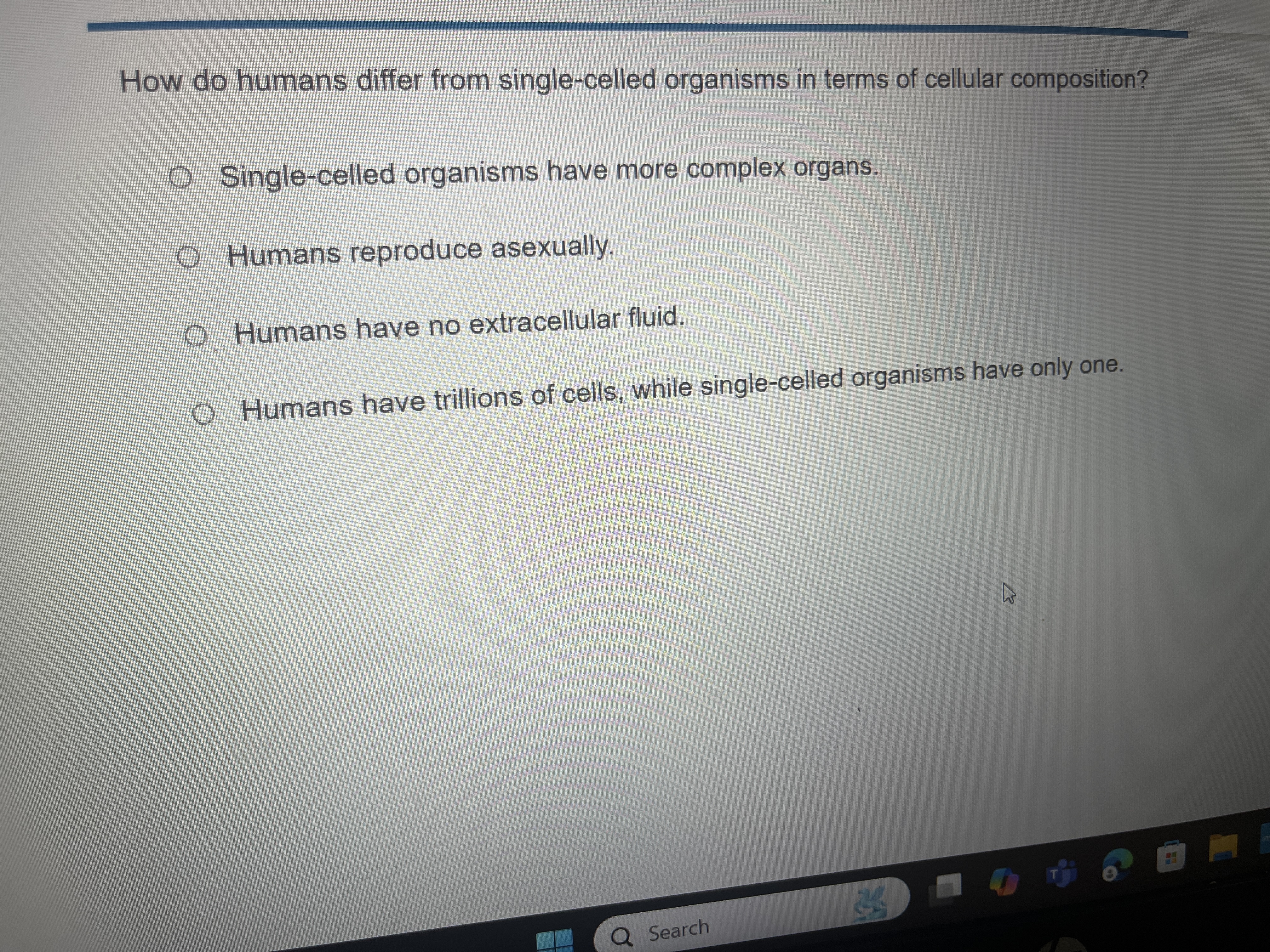How do humans differ from single-celled organisms in terms of cellular composition?

Understand the Problem
The question is asking about the differences in cellular composition between humans and single-celled organisms. It explores various aspects of cellular complexity and organization.
Answer
Humans have trillions of cells, while single-celled organisms have only one.
The final answer is Humans have trillions of cells, while single-celled organisms have only one.
Answer for screen readers
The final answer is Humans have trillions of cells, while single-celled organisms have only one.
More Information
Humans are multicellular organisms, consisting of trillions of specialized cells, while single-celled organisms are composed of just one cell that performs all life functions.
Tips
A common mistake is thinking single-celled organisms are more complex in structure than multicellular ones like humans. While simple in structure, single-celled organisms are highly efficient in their environment.
Sources
- Unicellular vs Multicellular | National Geographic - education.nationalgeographic.org
AI-generated content may contain errors. Please verify critical information